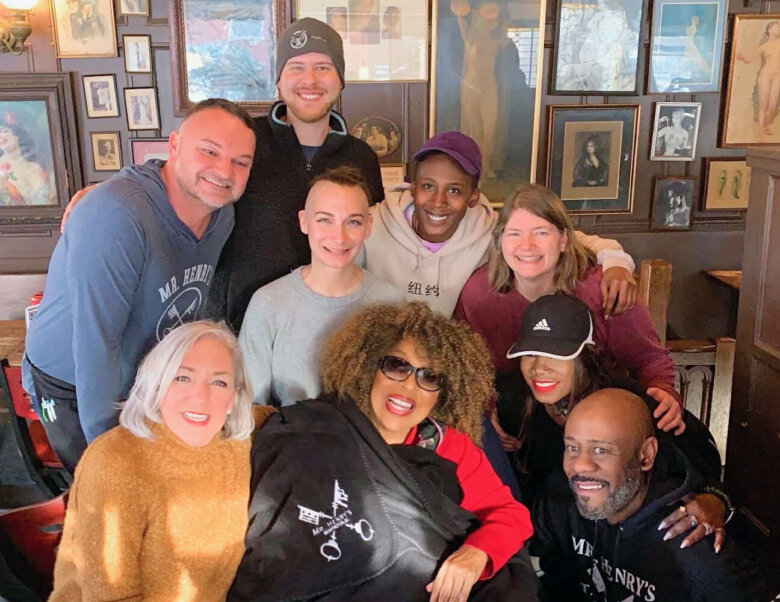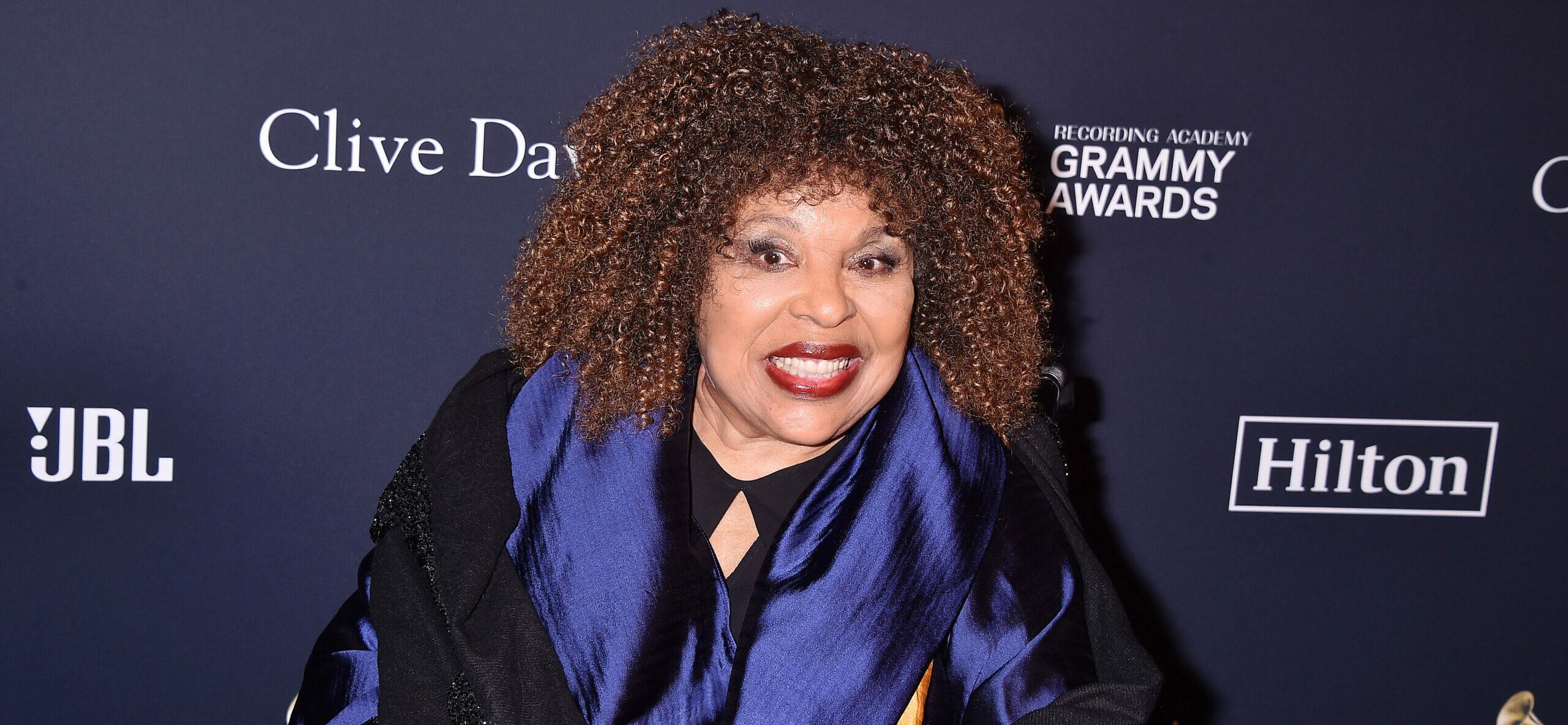18 Essential Roberta Flack Songs
From hits like “Killing Me Softly With His Song” and “The First Time Ever I Saw Your Face” to era-defining Donny Hathaway duets, and more

Skip to main content
soul queen
From hits like “Killing Me Softly With His Song” and “The First Time Ever I Saw Your Face” to era-defining Donny Hathaway duets, and more
February 24, 2025
kpa/United Archives/Getty Images
Roberta Flack was one of the essential voices of the Seventies, with her smooth, soft-spoken, slow-burning soul style. She specialized in hypnotic ballads like “Killing Me Softly With His Song,” “The First Time Ever I Saw Your Face,” and “Feel Like Makin’ Love,” all Number One hits. She grew up a classical piano prodigy, but made her name in Washington, D.C. clubs, turning heads with her early records like First Take and Chapter Two. She had a string of classic duets with kindred spirit Donny Hathaway, before his tragic death in 1979, like the jubilant “Where Is The Love.” Flack had her own unique sound—understated but commanding, full of serene intensity, scoring chart hits into the Nineties. Here are some classic Flack songs to remember her by—a voice that never stopped killing us softly.
‘Compared to What’
Image Credit: Jack Robinson/Hulton Archive/Getty Images
Written in 1966 by soul artist Gene Daniels, this protest anthem combined lyrics about the deep sense of unfulfilled promises despite a decade of Civil Rights activism while also addressing new issues like abortion rights and the Vietnam War. Les McCann, an early supporter of Flack, recorded the song in 1969, the same year Flack did it as the opening song on her landmark 1969 debut album First Take. Over a soul-jazz accompaniment, Flack channeled the song’s deep sense of desperation as well as its ironic bite, delivering a dazzling performance that served to announce the arrival of an artist who could easily be compared to Aretha Franklin and Nina Simone.–J.D.
‘The First Time Ever I Saw Your Face’
Image Credit: Jack Robinson/Hulton Archive/Getty Images
By the time Roberta Flack first encountered the song that would end up introducing her to the world, it had already been around for years. “The First Time I Ever Saw Your Face” was a standard first released in the late Fifties (Flack was introduced to it by hearing the folk duo Joe & Eddie’s version) that Flack herself began teaching to her students in a D.C. Glee Club. How her students responded ended up informing her interpretation: “I finally got these kids to teach me that the way to…deliver any other song is to start with what people know,” she told NPR in 2007. Flack’s indelible, slowed down version of the song became the breakthrough on her 1969 debut First Take, topping the Hot 100 for 6 weeks and earning her a Record of the Year Grammy. “The first time you ever see a great love,” she said in 2020, “you don’t rush the story.”–J.B.
‘Ballad of the Sad Young Men’
Image Credit: Michael Ochs Archives/Getty Images
This song was already a decade old when Flack got around to recording it, but as with so many other covers, Flack made it very much her own. Written for the Broadway show The Nervous Set, set in the Beat-generation Greenwich Village, it saluted the “all the sad young men, drifting through the townDrinking up the night, trying not to drown.” In Flack’s hands, the song, a dusky slice of cabaret, became a salute to, and acknowledgement of, the gay community.–D.B.
‘You’ve Got A Friend,’ with Donny Hathaway
Image Credit: Michael Ochs Archives/Getty Images
Everybody wanted to sing Carole King’s “You’ve Got a Friend” in the early 1970s, but nobody made it sound as soul-deep as Roberta Flack and Donny Hathaway. It’s the song that made her famous, her first Top 40 hit in early 1971, duetting with her old Howard University classmate Hathaway, harmonizing over his soulful electric piano. (It was his second hit, after the 1970 holiday ballad “This Christmas.”) They give “You’ve Got a Friend” the intensity of a Marvin/Tammy duet, especially in the final 30 seconds, calling it warmly to each other between lines. It introduced the world to one of the Seventies’ most magical vocal combinations.–R.S.
‘Will You Still Love Me Tomorrow’
Image Credit: Anthony Barboza/Getty Images
For Flack’s third album Quiet Fire, she covered the Carole King and Gerry Goffin-penned classic “Will You Still Love Me Tomorrow,” which had been made famous by girl group the Shirelles. Flack had first heard the song while teaching in Washington DC and made it a part of her pub singing repertoire. Flack’s version aligned most with King’s 1971 solo take. The soul legend cut to the emotional core, making for a gripping and heart-breaking piano ballad. Her tender, moving vocal performance highlighted all the slow-burning devastation and yearning of the song’s lyrics. It was the lead single for Quiet Fire, charting on the Hot 100 and becoming a favorite for many in Flack’s canon. :It was for me a time of deep introspection and this song expressed a vulnerability that each of us experiences in the course of finding and embracing love,” Flack said in 2021.–B.S.
‘Just Like a Woman’
Image Credit: Michael Putland/Getty Images
Flack turned this Bob Dylan classic upside down with her audacious interpretation on Chapter Two, singing “Just Like a Woman” in the first person. “I take just like a woman / And I make love just like a woman,” she sings, with no apologies. Her revisionary brilliance is in her blasé, unhistrionic tone—she makes Dylan’s original sound high-strung and needy by comparison, waving farewell to a romance with no regrets. She later joined Dylan on his 1976 Rolling Thunder tour. When Dylan, Joan Baez, Joni Mitchell etc. played the New Jersey prison where Rubin Carter was incarcerated, the Rolling Stone review noted that the prisoners had standing ovations for Flack but mostly “confusion” for everyone else.–R.S.
‘Where is the Love,’ with Donny Hathaway
Image Credit: Stephen Verona/Getty Images
One of Flack’s biggest and most sublime duets with her friend Donny Hathaway remains a beautifully heady experience. The arrangement is luscious, and the combination of Flack’s firm soprano and Hathaway’s earthier tones gives the song its allure and its conversational tone. But beneath that aural beauty is one truly sad tune, about the moment you realize that the person you love remains in love with someone else and isn’t about to change his or her mind even after all the teasing. You get to swept up in the song that it’s easy to miss some of the most forlorn lines in pop history, like when Flack and Hathaway jointly sing “You told me that you didn’t love him/And you were gonna say, goodbye/But if you really didn’t mean it/Why did you have to lie?”–D.B.
‘Be Real Black For Me,’ with Donny Hathaway
Image Credit: kpa/United Archives/Getty Images
“Be Real Black for Me” wasn’t a major Billboard chart hit, but it resonates as a shining hallmark of the “Black is beautiful” era. Written by Roberta Flack, Donny Hathaway, and underrated singer Charles Mann, it radiates warmth and loving, Afrocentric pride. When Flack croons, “Your hair’s soft and crinkly,” the line startles because Afros are rarely described in popular music as a beautiful thing, not just a symbol of societal rebellion, and as worthy of adoration as golden blond hair. Her slow and bluesy vocal intonation caresses these words as she addresses Hathaway as well as us, the audience. Hathaway, for his part, insists, “You don’t have to wear false charms.”–M.R.
‘Killing Me Softly With His Song’
Image Credit: Chris Walter/WireImage
Flack wasn’t the first to record this ode to the tower of song, which was inspired by the time singer Lori Lieberman attended a Don McLean show during his “American Pie” moment. Lieberman herself cut the first version of the Charles Fox/Norman Gimbel tune. But from the moment Flack begins singing the chorus in the intro, she takes possession of it in a way that no one else who covered it, even Lauryn Hill during her Fugees days, could match. One long lilting sway, Flack’s “Killing Me Softly with His Song” was a groundbreaker in the Quiet Storm genre; her restrained but emotive delivery is nestled in producer Joel Dorn’s twinkling, tender arrangement, and Flack’s wordless “who-oh-oh” improv is one of her most impassioned moments on record. But the greatness of it lies in the way that a song about the power of music becomes a seductive vehicle all its own.–D.B.
‘Some Gospel According to Matthew’
Image Credit: CBS/Getty Images
“Some Gospel According to Matthew” was never a hit, but it epitomized the smoky, introspective calm that made Flack an unforgettable voice. It’s an acoustic guitar ballad written by Stuart Scharf, the flip side of her ’74 hit “Feel Like Making Love,” later on her album of the following year. Flack adopts a breezy, unflappable response to a lovers’ quarrel, singing “Love according to Matthew’s a matter of time.” It glides with a jazzy feel that’s not far from Joni Mitchell’s For the Roses, ending with the understated confidence of Flack’s kiss-off, “I’ve come a long way using freedom to keep me inclined / So take it from Matthew, it’s my time.”–R.S.
‘Feel Like Makin’ Love’
Image Credit: Ann Limongello/Disney General Entertainment Content/Getty Images Photo Archives/Getty Images
Flack’s 1974 single “Feel Like Makin’ Love” became one of that year’s biggest and most-defining hits. Dreamy and sensual, Flack’s fantasies are intimately on display, recalling how the most simple delights in life — the changing seasons, holding hands — make her yearn most for her lover. You can sense the impact her delicate vocals over the groovy beat may have influenced the disco queens that would follow Flack in the years to come, like Donna Summer and Thelma Houston. Flack produced the song herself, under the pseudonym Rubina Flake. She would end up naming her following album after the hit, self-producing the entire project as well.–B.S.
‘The Closer I Get To You,’ with Donny Hathaway
Image Credit: Frank Lennon/Toronto Star/Getty Images
One of the peak R&B ballads of the 1970s, “The Closer I Get To You” was a Grammy-nominated smash for Flack and Donny Hathaway, a subtle, conversational duet that showcased their one-of-a-kind chemistry and intimacy. It was written by two members of Miles Davis’ band, Mtume and a future Madonna producer Reggie Lucas. The version that went Top Five in 1978 was just under five minutes, but the original studio take Flack and Hathaway cut went twice that long, Flack later said of her partnership with Hathaway, “‘Our musical synergy was unlike [anything] I’d had before or since.” In 2003, Beyonce and Luther Vandrose paid tribute with a sterling cover version of the song, proving it hadn’t lost a bit of its dynamic power a quarter century after it was first released.–J.D.
‘Back Together Again,’ with Donny Hathaway
Image Credit: Anthony Barboza/Getty Images
Donny Hathaway was a volcanic talent whose career was blighted by personal struggles. He only released four solo albums – and the soundtrack collaboration with Quincy Jones, Come Back Charleston Blue – before ending his life in 1979 at the tragically young age of 33. The following year brought Roberta Flack Featuring Donny Hathaway, which was originally intended as a follow-up to their beloved 1972 album Roberta Flack & Donny Hathaway; he only finished two songs with her. But both are excellent: “Back Together Again,” in particular, became a Black radio and summertime cookout staple. James Mtume and Reggie Lucas’ light disco arrangement provides an excellent complement to Flack and Hathaway’s joyously soulful duet, making for a blissful reunion of two icons of conscious soul.–M.R.
‘Making Love’
Image Credit: John Mahler/Toronto Star/Getty Images
Roberta Flack was the kind of singer who could score two massive hits with nearly identical titles. But where her 1974 “Feel Like Makin’ Love” was dreamy romantic bliss, her 1982 comeback hit “Making Love” was a rueful, disillusioned ballad for two wounded lovers learning to trust all over again. The legend Burt Bacharach wrote it for her with Carole Bayer Sager and Bruce Roberts, as the theme song for a Hollywood drama about a wife who discovers her husband is gay. “There’s more to love, I know, than making love,” Flack sings—the slogan from the movie ads. The movie was almost instantly forgotten, but the song was a major comeback—Flack’s first Top 40 hit in three years. “Making Love” was the perfect combination of a Bacharach melody and her hushed, melancholy vocals.–R.S.
‘Tonight I Celebrate My Love,’ with Peabo Bryson
Image Credit: Gene Arias/NBC/NBCU Photo Bank/Getty Images
“Tonight I Celebrate My Love” is the hit ballad from Flack’s album of duets with Robert Peapo “Peabo” Bryson, Born to Love. The Gold-certified record from 1983 predates Bryson’s spree of iconic duets for Disney’s Beauty and the Beast and Aladdin, but builds upon Flack’s discography of some of R&B’s most tasteful songs about coitus. Co-written by Gerry Goffin, who also penned the Shirelles‘ classic “Will You Still Love Me Tomorrow” with with Carole King (see above), the song turns sex into something truly spiritual. “Soon this old world will seem brand new,” Flack coos with a sweet sense of wonder. It’s one of her best known ballads, true to her soft touch and soaring sense of hope.—M.C.
‘Oasis’
Image Credit: Paul Natkin/Getty Images
Arriving near the end of the 1980s, “Oasis” encapsulates the era’s adult-contemporary tropes. Produced by Roberta Flack and written by Marcus Miller and Mark Stephens, it boasts light and tinkling keyboard lines and a swaying, percussive track that evokes the World Music vibes then in vogue. Indeed, it topped Billboard’s Black musicsingles chart and landed in VH1’s heavy rotation. Flack sounds playful and inspired here as she sings, “Let me hold you close, I’ve got what you need,” and muses about sharing a heart underneath a desert moon. For someone famed for intensely profound ballads, “Oasis” was an occasion to kick off her shoes and enjoy the rhythms of life.–M.R.
‘Uh-Uh Ooh-Ooh Look Out (Here It Comes)’
Image Credit: Paul Natkin/Getty Images
Flack had a welcome resurgence in the late Eighties with Quiet Storm hits like “Uh-Uh Ooh-Ooh Look Out (Here It Comes),” updating the moody warmth of her Seventies work for the lush creamy sound of R&B radio. “Uh-Uh Ooh-Ooh Look Out (Here It Comes)” comes from the legendary Motown team of Ashford & Simpson, as she detects bad news in her lover’s voice over the phone, sighing, “I know a goodbye when I hear one.” It’s full of Eighties bongos, sax, slap bass, and cushy synth hooks, produced by Flack herself. “I wish it came as a surprise / But heartbreak is someone I recognize.”–R.S.
‘Set the Night to Music,’ with Maxi Priest
Image Credit: John Atashian/Getty Images
Flack had her final hit with “Set the Night to Music,” a Diane Warren ballad that she turned into a 1991 duet with London reggae singer Maxi Priest. It was fitting since early-Nineties radio was full of smooth soul voices in the Flack tradition, from En Vogue and Regina Belle to Anita Baker and Whitney Houston. “Set the Night to Music” was originally a Starship deep cut, but Flack makes it her own—when she sings, “It’s just like a dream, some romantic fantasy,” she could be describing her entire lifetime of music.–R.S.
Contributors: Jonathan Bernstein, David Browne, Mankaprr Conteh, Jon Dolan, Mosi Reeves, Rob Sheffield, Brittany Spanos
Top stories newsletter
A Cultural Force That Transcends Generations
By providing your information, you agree to our Terms of Use and our Privacy Policy. We use vendors that may also process your information to help provide our services.
Go to PMC.com
Why Dana Carvey, Bill Hader and More 'SNL' Legends Skipped 50th Anniversary Show
We Already Know How Taylor & Daniel's Love Is Blind Journey Ends
Blink-182 Cofounder Mark Hoppus to Sell $5 M. Banksy Painting at Sotheby's in London
Irv Gotti's Funeral: Ja Rule, JAY-Z And Other Loved Ones Mourn Late Mogul At Queens Service
Rolling Stone is a part of Penske Media Corporation. © 2025 Rolling Stone, LLC. All rights reserved.
Powered by WordPress.com VIP
ad

















)




